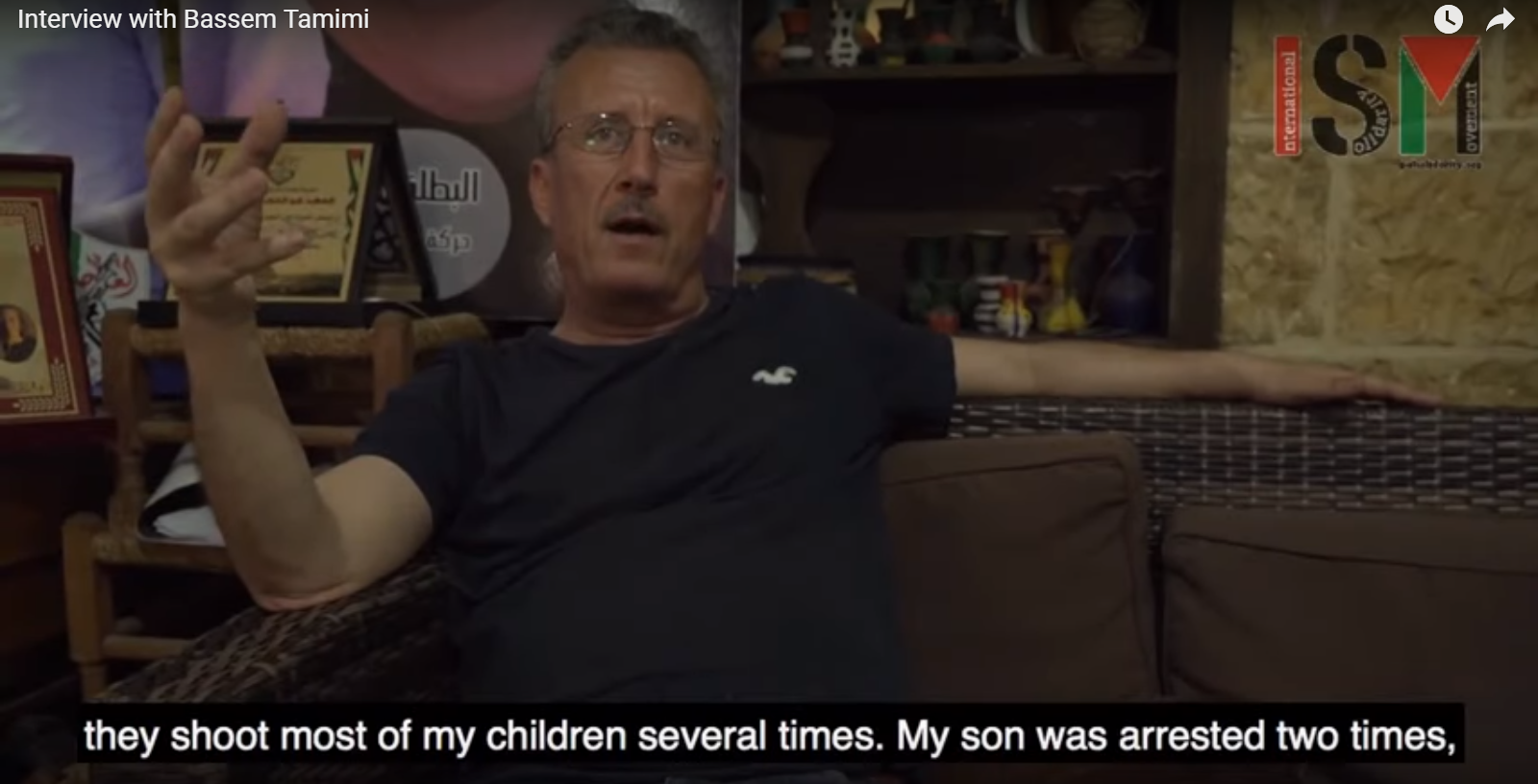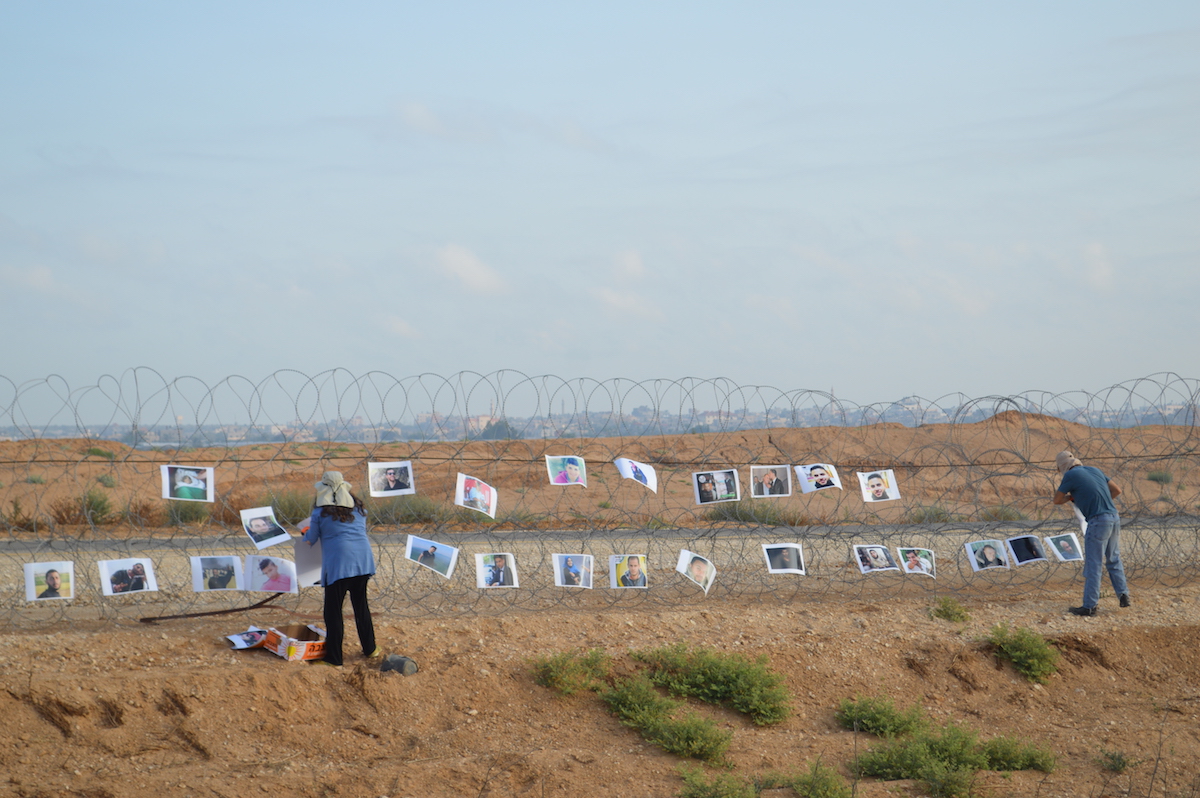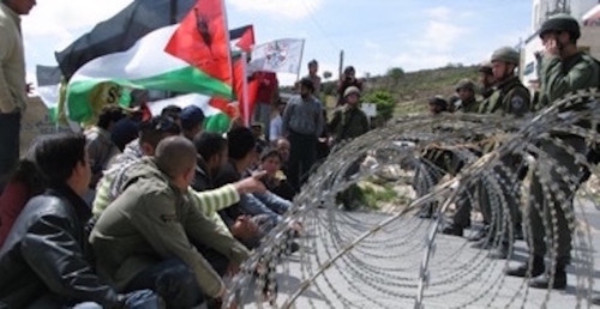Category: In the Media
-
‘Why Ahed slapped the soldier’: an interview with Bassem Tamimi
12th June 2018 | Mondoweiss | Nabi Saleh, occupied Palestine This interview with Bassem Tamimi was recorded on May 4, 2018 in the occupied village of Nabi Saleh, by International Solidarity Movement activists. His daughter Ahed Tamimi, 17, is serving an eight-month prison sentence for slapping an Israeli soldier on the family’s property on December 15…
-
Jewish Israeli activists call for Palestinian right of return, hang portraits of protesters murdered in Gaza on Apartheid Wall
First published by Mondoweiss The following press release was sent to Mondoweiss regarding two actions in support of the right of return that were taken by Jewish groups in Israel today: At 6 AM today, an anonymous group of Israeli-Jewish activists, calling themselves “RETURN” hung photos of the martyrs of the Great Return March on the Gaza…
-
ISM Tours USA : Bring the Palestinian resistance to speak to your community
Are you ready to take your activism for Palestine to the next level? In 2002, the International Solidarity Movement grabbed world attention by bringing volunteers from around the world to defend Palestine through nonviolent resistance. They stayed with resistance fighters in the Nativity Church in Bethlehem. They brought medical supplies to the besieged Palestinians in the ancient…



